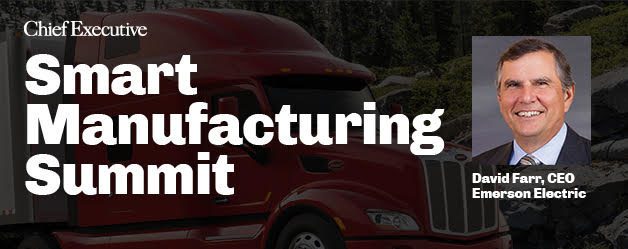
Foxconn’s manufacturing commitment to America seems to be faltering on treacherous shoals these days, with Wisconsin Governor Tony Evers now insisting that the project tabbed for his state by the Taiwan-based glass-screen maker is never going to reach the level of $10 billion with the creation of 13,000 jobs that was in the original deal.
In fact, Evers said on Wednesday that he wants to renegotiate the state’s 2017 contract with Foxconn Technology Group under which the state, then run by former Governor Scott Walker, promised up to $4 billion in financial incentives to land the Foxconn project.
“Clearly the deal that was struck is no longer in play and so we will be working with individuals at Foxconn and of course with [state economic-development officials] to figure out how a new set of parameters should be negotiated,” Evers told reporters in his office in the state capitol in Madison. “We believe we need to take a look at that contract and see if it needs to be downsized.”
The problem seems to be that the Foxconn project is rather rudderless these days and Evers is only too happy to take the helm.
Of course Evers, a Democrat, successfully ran for the governorship last fall in part on heavy skepticism about whether Walker, a Republican, had given away too much to Foxconn. Meanwhile, Foxconn CEO Terry Gou and other company officials were unwittingly buttressing Evers’ critique by raising doubts about whether the world’s largest maker of glass screens for electronics could build a factory for fabricating TV-size screens or might have to downsize its ambitions for Wisconsin with a less-extensive plant that would make much smaller screens.
Now, Evers has an increasingly clear path for trying to claw back some of the state’s financial commitments to Foxconn in part because the figureheads of the Foxconn deal are being increasingly sidelined. Gou has just declared his candidacy for president of his country, after he said that the sea goddess Matsu called him to the task. Walker has been reduced to the role of a guest radio-talk-show host who’s being picked at by the state’s prominent U.S. Rep. Jim Sensenbrenner, a fellow Republican who disagrees with Walker’s views on immigration.
And of course President Donald Trump—who gleefully participated in the groundbreaking ceremony for Foxconn construction in southeastern Wisconsin in 2017 and called the project “the eighth wonder of the world”—now has other business to attend to.
That leaves the rhetorical field fairly clear for Evers, who is positioning his interest in renegotiating with Foxconn as an inevitable concession to what he said is the company’s clear intention to reduce its commitment to Wisconsin, somehow.
After faltering, a phone call from Trump helped Gou recommit to Foxconn’s original investment and employment projections under the deal.
And Wisconsin Republicans quickly jumped on Evers, in part because they said it’s important for the state to keep its economic-development commitments.
“If the state is willing to renege on its commitment to Foxconn and open up a contract without agreement by both parties, then what guarantee can Wisconsin make to any other company that wants to expand here,” Senate Majority Leader Scott Fitzgerald said in a statement.
 Manufacturing CEOs, join us for our annual Manufacturing Summit to hear keynotes from Bob Chapman, David Farr and others. Held this year in Dallas, Texas on May 14-15. Register here.
Manufacturing CEOs, join us for our annual Manufacturing Summit to hear keynotes from Bob Chapman, David Farr and others. Held this year in Dallas, Texas on May 14-15. Register here.
Read more: After Foxconn, Politicians May Beware Of CEOs Bearing Gifts

Chief Executive Group exists to improve the performance of U.S. CEOs, senior executives and public-company directors, helping you grow your companies, build your communities and strengthen society. Learn more at chiefexecutivegroup.com.
0

1:00 - 5:00 pm
Over 70% of Executives Surveyed Agree: Many Strategic Planning Efforts Lack Systematic Approach Tips for Enhancing Your Strategic Planning Process
Executives expressed frustration with their current strategic planning process. Issues include:
Steve Rutan and Denise Harrison have put together an afternoon workshop that will provide the tools you need to address these concerns. They have worked with hundreds of executives to develop a systematic approach that will enable your team to make better decisions during strategic planning. Steve and Denise will walk you through exercises for prioritizing your lists and steps that will reset and reinvigorate your process. This will be a hands-on workshop that will enable you to think about your business as you use the tools that are being presented. If you are ready for a Strategic Planning tune-up, select this workshop in your registration form. The additional fee of $695 will be added to your total.

2:00 - 5:00 pm
Female leaders face the same issues all leaders do, but they often face additional challenges too. In this peer session, we will facilitate a discussion of best practices and how to overcome common barriers to help women leaders be more effective within and outside their organizations.
Limited space available.

10:30 - 5:00 pm
General’s Retreat at Hermitage Golf Course
Sponsored by UBS
General’s Retreat, built in 1986 with architect Gary Roger Baird, has been voted the “Best Golf Course in Nashville” and is a “must play” when visiting the Nashville, Tennessee area. With the beautiful setting along the Cumberland River, golfers of all capabilities will thoroughly enjoy the golf, scenery and hospitality.
The golf outing fee includes transportation to and from the hotel, greens/cart fees, use of practice facilities, and boxed lunch. The bus will leave the hotel at 10:30 am for a noon shotgun start and return to the hotel after the cocktail reception following the completion of the round.